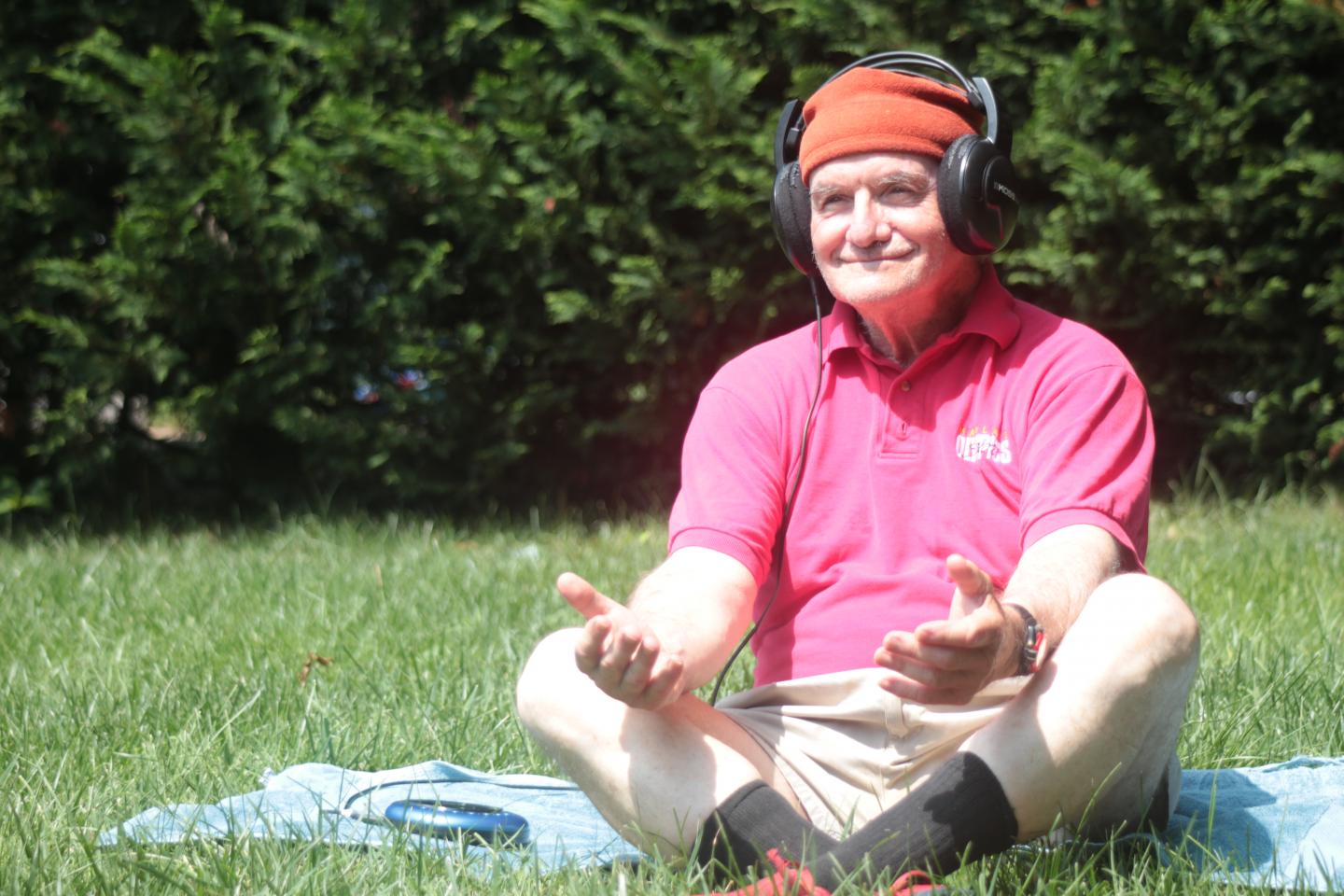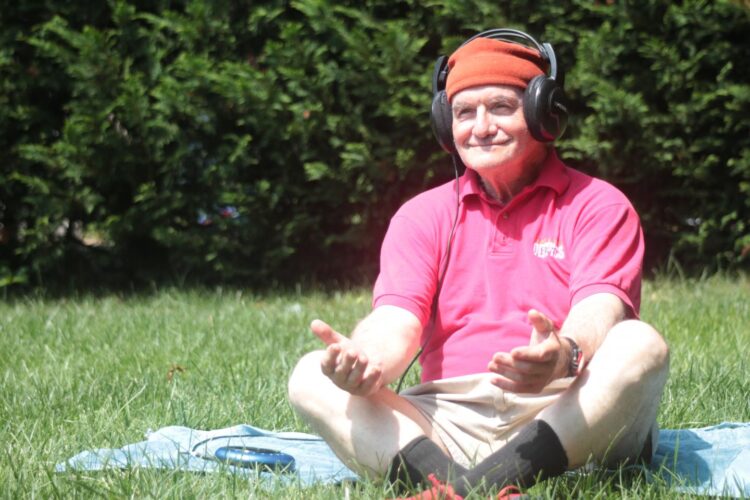Survey data from more than 61,000 people points to heart benefits

Credit: Mitch Mirkin
Meditation was linked to lower cardiovascular risk in a data analysis by Veterans Affairs researchers and colleagues.
The results appeared online June 30 in the American Journal of Cardiology.
Previous studies have suggested that meditation may have beneficial effects on a number of conditions. A 2017 American Heart Association scientific statement suggests that meditation may be of benefit for cardiovascular risk reduction. Data show that it may help with blood pressure, cholesterol level, quitting smoking, and overall cardiovascular health. However, this connection is far from definitive. By using a large national database with many participants, the authors of the new study sought further evidence on how meditation impacts cardiovascular risk.
Lead researcher Dr. Chayakrit Krittanawong–of the Michael E. DeBakey VA Medical Center, Baylor College of Medicine, and the Icahn School of Medicine at Mount Sinai–and his colleagues studied data from the National Health Interview Survey, conducted annually by the National Center for Health Statistics. It collects information on a wide range of health topics from a nationally representative sample.
The researchers looked at data on more than 61,000 survey participants. Of those, almost 6,000 (nearly 10%) said they participated in some form of meditation.
The researchers found that people who meditated had lower rates of high cholesterol, high blood pressure, diabetes, stroke, and coronary artery disease, compared with those who did not meditate.
The greatest difference was in coronary artery disease. Those who meditated were 51% as likely as those who didn’t to have the disease. The prevalence of other cardiovascular risks in the meditation group compared with the non-meditation group was 65% for high cholesterol, 70% for diabetes, 76% for stroke, and 86% for high blood pressure.
The researchers controlled for other factors connected to cardiovascular risk, such as age, sex, cigarette smoking, and body mass index. After adjusting for these factors, the effect of meditation was still significant.
Many types of meditation exist. Most focus on attention and awareness. Meditation has been shown to increase physical and mental relaxation. “I believe in meditation, as it can give us a sense of calm, peace, and stress reduction, leading to improvement of our emotional well-being,” explained Krittanawong.
Practicing meditation has been linked to decreased stress, greater mindfulness, and improved psychological health. It may even lead to long-term functional and anatomical changes in the brain. Meditation is also simple, cost-effective, and low-risk.
Krittanawong and colleagues did note several limitations to the study. First, the survey did not capture what type of meditation people were using. Some types of meditation may offer more cardiovascular benefit than others, say the researchers. The survey also did not ask about the duration or intensity of that meditation. It is possible that those who practice longer and more frequently will get more benefit, but the study cannot measure these effects.
Also, the researchers cannot definitively say that meditation directly decreases cardiovascular risk. It could be that people who are in better cardiovascular health to begin with are more likely to practice meditation, rather than the other way around.
Other life activities might also obscure the link between meditation and cardiovascular health. The researchers found factoring in alcohol consumption and physical activity lowered the significance of the relationship between meditation and cardiovascular risk.
Considering all these factors, the researchers concluded that meditation is “probably” associated with lower prevalence of cardiovascular risk. Krittanawong notes that, while the results suggest that meditation can improve cardiovascular health, “we would need a powerful study such as a clinical trial to determine whether meditation could benefit cardiovascular health in veterans.”
Meanwhile, the study adds to a growing body of research on the potential benefits of meditation, they say.
###
The study authors are from the Michael E. DeBakey VA Medical Center, Baylor College of Medicine, the Icahn School of Medicine at Mount Sinai, the Cleveland Clinic, and the Mayo Clinic.
For more information about VA research on meditation, visit the Complementary and Integrative Health topic page on the VA research website: http://www.
Media Contact
Bruce Hill
[email protected]
Original Source
https:/





